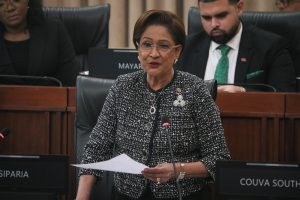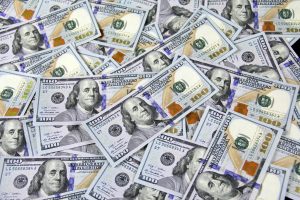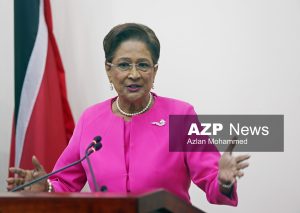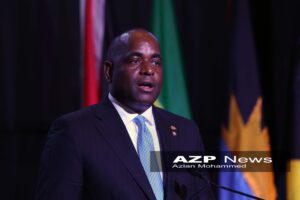FINANCE Minister Colm Imbert announced plans to urge energy sector companies operating in Trinidad and Tobago to pay their taxes in US dollars.
Speaking at a virtual media briefing on Tuesday, Imbert addressed the ongoing foreign exchange issues in the country. He said that since these companies received payments in USD, it is logical for them to pay their taxes in the same currency.
He said, “It stands to reason that all taxes paid by energy companies that do not sell their products locally, I mean an oil company sells its oil internationally… all of these energy sector companies, they earn their income in US dollars so it only stands to reason that they should pay their taxes in US dollars.”
Imbert said that this practice has not been followed and plans to discuss it with the companies in the coming months.
Imbert also said that the Finance Ministry does not control the distribution of the country’s foreign exchange.
He explained that taxes paid in US dollars are deposited into a special account at the Central Bank, forming part of the government’s foreign reserves. The Central Bank periodically releases foreign exchange to commercial banks based on their size and customer base.
Imbert described the current system as an “honour system” that prioritises trade, medical expenses, and tuition overseas. However, he noted that luxury purchases, like buying a condominium in Miami, rarely receive preference.
“It’s expected that banks would exercise responsibility [and] equity, justice and all that sort of thing in the distribution,” he said.
Imbert planned to engage with stakeholders to discuss whether this system should transition to a more regulated structure. He aims to conclude these discussions by the end of the year.
Imbert noted that while the government arranges the distribution of foreign exchange to EximBank, he is not personally involved. “It’s a complicated thing but it works very well… 80 per cent of the foreign exchange customers at the EximBank are small and medium enterprises, not the large ones at all,” he said.
Local companies have expressed concerns about difficulties in procuring foreign exchange for purchasing goods. In response, the Finance Ministry announced that EximBank has resumed a forex window for essential items, with a total of US$25 million available per month, effective from November 1, 2024.
The Ministry clarified that the list, formulated during the COVID-19 pandemic, includes essential items such as feminine sanitary items, pharmaceuticals, and food, among others. While the list will be subject to periodic review, items such as hand soap, toothpaste, and face masks will no longer be considered essential.
Additionally, the Ministry is considering greater access to forex for inputs for local consumption, with further details to be announced after stakeholder consultations.
![]()













